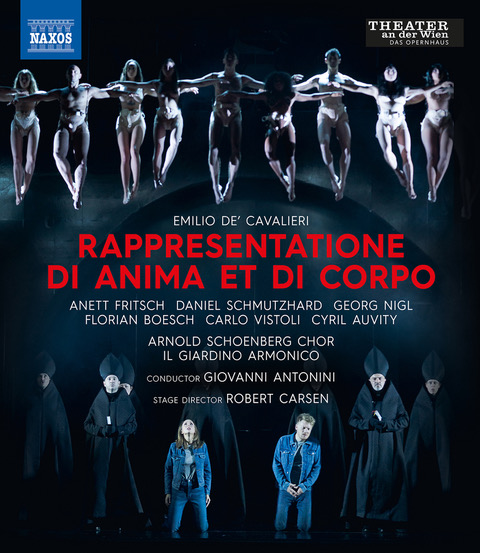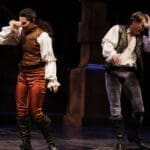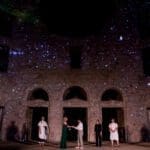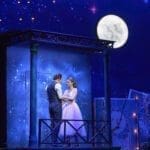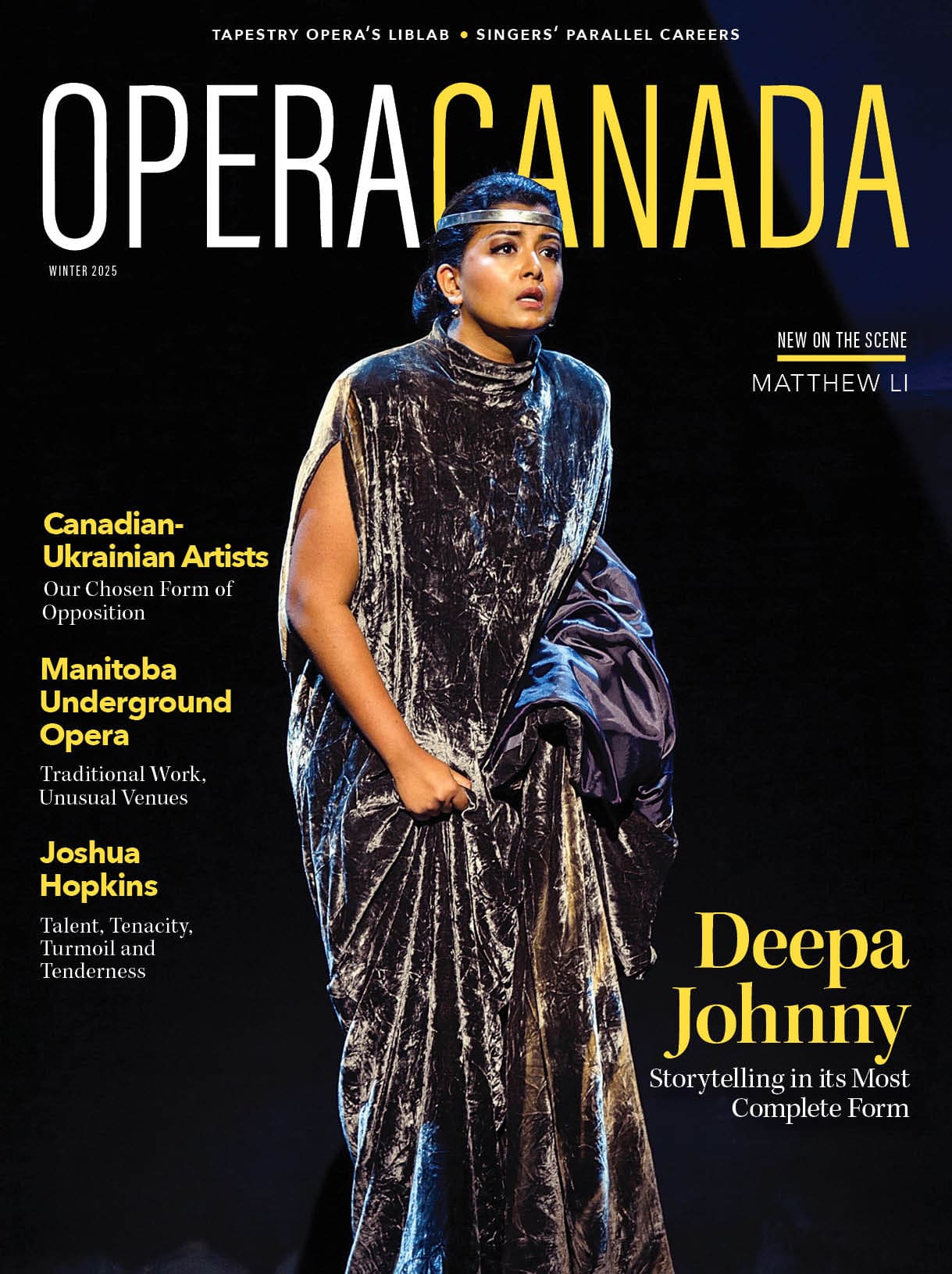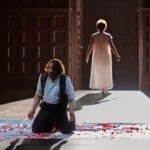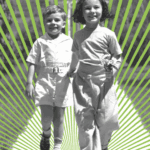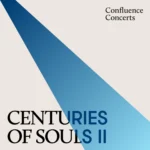Emilio de’ Cavalieri’s Rappresentatione di Anima et di Corpo of 1600 is the first opera to come down to us and has some claim to being the earliest work in the genre. In 2021 it was given a fully staged production, directed by Robert Carsen, at the Theater an der Wien.
It’s a highly allegorical work. Anima seeks the answers to life’s big questions. Corpo is more drawn to the pleasures of the world but agrees to join Anima on their quest. Various characters; Tempo, Intelletto, Consilio, Piacere, Angelo Custode, etc., alternatively tempt the pair or advise them that the truth lies beyond pleasure.The couple are shown the consequences of sin and virtue but reject the argument that one should be good because of rewards and punishments. One should seek the good but that is the proper fulfilment of being human. It sounds horribly didactic but in fact it’s quite witty and engaging and Carsen’s production makes the most of the entertainment value. He also manages to transcend the very clearly Counter-Reformation ideology of the piece to express something more universal.
He starts with a spoken prologue, which replaces the one in the original. The chorus, in casual dress with luggage, argue about why they are there. Is it a rehearsal? Is there a prologue? Should there be a prologue? After much expostulation, some of it in the choristers’ native languages (highly varied) they conclude that ‘Religion is Theatre and Life is not a Rehearsal’. Cue the music.
In Act 1 we meet Tempo (very drunk) who admonishes us that Life is short so we should do good. Intellect, with the help of Dante, explains that earthly desires are futile. Anima (like Corpo, dressed in denim) wants answers but Corpo is not convinced. Still, he loves Anima so will accompany her on her quest. All this takes place on a pretty much empty, very dark, stage.
Act 2 opens with the chorus sitting in very Carsen-esque rows of chairs. It’s soon apparent that this is a church and Consiglio is the minister. Corpo is trying to figure out what is going on while Anima listens to the preaching. The church is invaded by a horde of red clad revellers led by Piacere. This is all very noisy and lively bordering on an orgy. Corpo is attracted to the fleshly pleasures offered but Anima is having none of it. She shouts her philosophical questions into the void where Echo answers with the last word of each question spelling out “Flee vain pleasure, love God truly”. A brightly lit gateway appears at the back of the stage; scene for the entrance of a glittering, gold clad Mondo and sidekicks. Anima learns that one cannot serve God and the world. Angelo Custode strips Mondo and Vita Mondana of their finery to reveal decayed human bodies. He expounds on the impermanence of earthly existence. Even Corpo is revolted and persuaded of the correctness of Anima’s path.
In Act 3 we see dancers, on wires, alternately ascending to the heavens and descending, writhing, into Hell; demonstrating the eternal rewards of sin and virtue. Anima and Corpo ignore them and proceed to write out thast one should pursue Good for itswn sake. They appear in smart white suits and are embraced by the Heavenly Host. A rather jolly party ensues in celebration. I’m not sure that Cavalieri and his librettist intended to subvert the paradigm of eternal reward and punishment but Carsen effectively does. To embrace Truth; whatever that is, is to be truly human.
Musically there’s lots to like. The instrumental music is designed to support rather than overwhelm the singers (Cavalieri’s introduction to the score is clear on that point) and the showier bits are confined to sinfonias between the acts but it’s well crafted early Italian baroque and played with verve by Il Giardino Armonico. The singing voices range the full spectrum from soprano to bass and one assumes would originally all have been sung by males. Here the higher parts are sung by women except for Angelo custode who is sung by countertenor Carlo Vistoli with lovely ornamentation and a clear sense of style. Soprano Anett Fritsch sings Anima beautifully and acts exceptionally well. She’s well matched by baritone Daniel Scmutzhard as Corpo. He’s actually very funny at times. Cyril Auvity and Florian Boesch are rock solid as Intelletto and Consiglio. Margharita Maria Sala and Georg Nigl camp it up nicely as Vita mondana and Mondo. The dancers, choreographed by Lorena Randi, are very effective and the Chorus is the consistently excellent Arnold Schoenberg Chor.
Video direction is by Paul and Peter Landsmann and they do a good job with a very difficult production to film. They don’t fall into the trap of endless close-ups when it gets dark so one probably wants to watch this on Blu-ray, where the video quality is just about good enough, rather than DVD. Sound quality is excellent. The booklet has a very good synopsis and a very interesting interview with Carsen.
This piece is not just a landmark in opera history but also genuinely enjoyable, at least in Robert Carsen’s characteristically intelligent and amusing production.
Related Content ⬇
Opera Canada depends on the generous contributions of its supporters to bring readers outstanding, in-depth coverage of opera in Canada and beyond. Please consider subscribing or donating today.
THEATER AN DER WIEN
RELEASED: MARCH 10, 2023
EMILIO DE’ CAVALIERI RAPPRESENTATIONE DI ANIMA ET DI CORPO
Catalog Number: NBD0161V
UPC: 730099016162
Label: Naxos AV
Conductor Giovanni Antonini
Arnold Schoenberg Chor
Il Giardino Armonico
Anett Fritsch
Daniel Schmutzhard
Georg Nigl
Carlo Vistoli
Cyril Auvity
Florian Boesch
Paul Landsmann
Peter Landsmann
Robert Carsen


